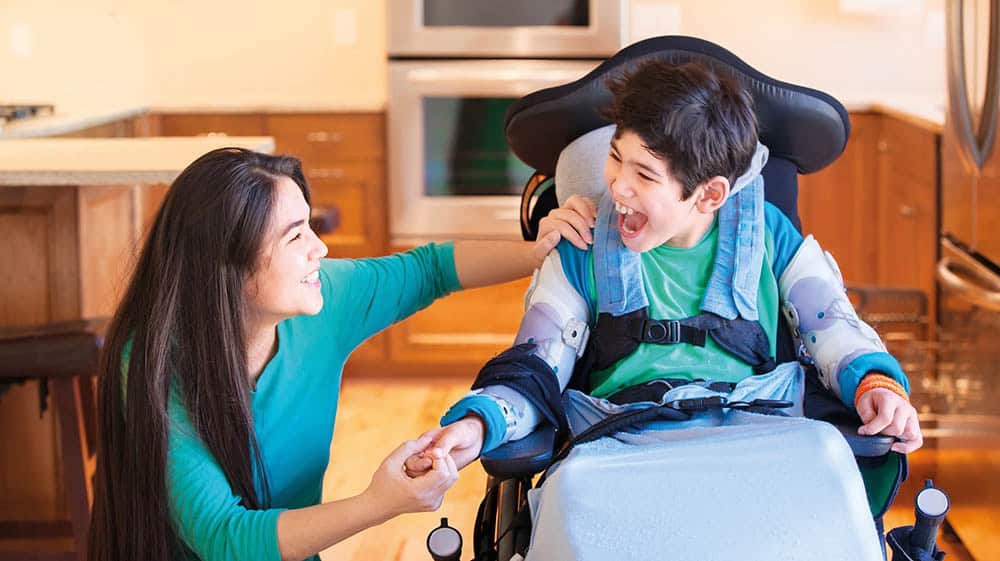New NHS pilot could help improve care for patients with a learning disability

A new pilot from NHS Digital is set to help improve care standards for patients with learning disabilities to ensure their needs are met by informing healthcare staff of their disability so that they can make reasonable adjustments.
In the trial, doctors, nurses and other healthcare staff will access relevant information through a patient’s record to understand their learning disability and specific needs.
The pilot, knowns as a reasonable adjustment flag, can include a patient’s need for a longer appointment or a quiet waiting area as well as how to communicate with them or who to involve in decisions about their health and care.
Currently in Gloucestershire and Devon, the pilots involve a range of care settings including GP surgeries, hospitals and community services for learning disability. The pilots will consider how care is impacted when that information is readily available to staff from the first point of contact onwards.
Susan Hanley, Chief Executive of Leeds People First and a leading learning disability campaigner, said: “1.5 million people in the United Kingdom have a learning disability but it can’t always be seen.
“For me, if the hospital had a system that told them that I wanted easy-read information and for the doctor to speak clearly with no jargon, it would be really useful as I don’t always have my health passport on me. Some people don’t want to repeat themselves to everyone they meet so this information on a computer would help.”
The pilots will run to the end of September, allowing time for feedback to be gathered by staff, patients and carers and to give NHS Digital the opportunity to explore potential expansion.
Dr Rob Jeeves, Clinical Lead for the project at NHS Digital, commented: “By helping staff to recognise their patients’ needs earlier, we can help those patients access the best possible care while reducing pressure on the NHS.
“This pilot will explore how flagging vital information can influence the experience of care for people with a learning disability.
“This will help to drive real improvement for a patient group that is disproportionally affected by poor health outcomes. I welcome this step and look forward to the results of the pilot.”
Under the Equality Act 2010, health and care organisations have a legal duty to make it as easy for people with a disability to use health services as it is for people who do not have a disability. This is called making reasonable adjustments.
Examples of reasonable adjustments include ensuring hospitals are wheelchair accessible, providing easy read appointment letters and longer appointments if someone needs more time with a doctor or nurse to make sure they understand the information they are given.
NHS Digital is the national information and technology partner of the health and care system. It aims to harness the power of technology to improve health and care.

